If you feel like a mindset novice, before reading this article, you might find value in reading this article: What are Mindsets & Why are They Foundational to Our Success? It lays the groundwork for why I am focusing on and summarizing the benefits of an outward mindset.
Inward and Outward Mindsets
We possess an outward mindset when we see others as being just as important as ourselves. When we see that others’ needs and wants matter just as much as our own, we are able to see and care about others as people.
We possess an inward mindset when we see ourselves as being more important than others. When we see our needs and wants as being of greater concern than others, we tend to see others as objects, rather than as people.
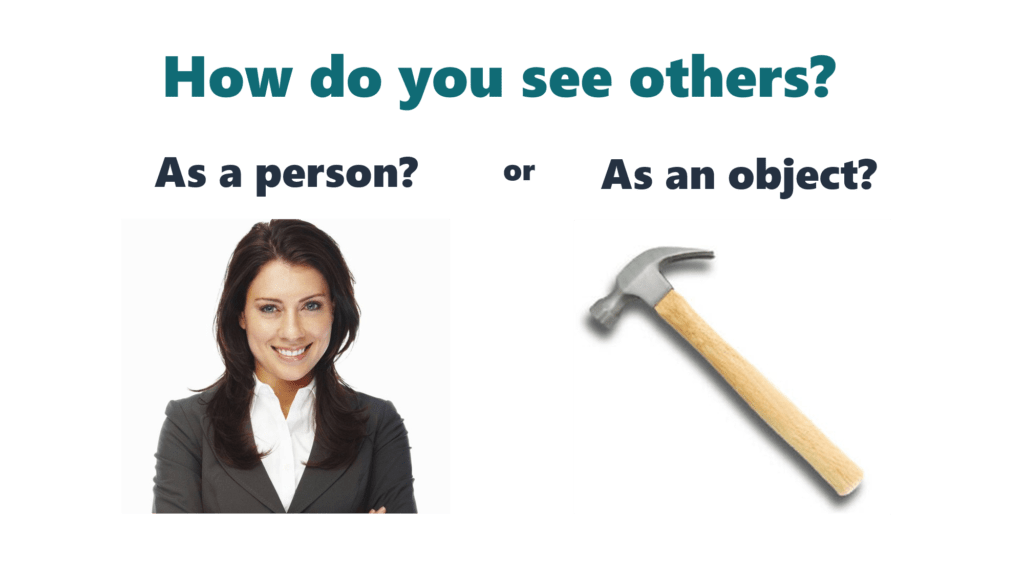
To better appreciate the difference that these mindsets can have, consider how you see a homeless person asking for assistance.
Do you see that person as being less important than yourself? If so, you are going to be inclined to see them as not doing their best, become critical of them (e.g., why don’t you do something more productive with your time), and less inclined to help them.
Or, do you see that person as being just as important as yourself? If so, you are going to wonder, “What in the world has happened in their life that has led them to believe this is the best way to live?” When we ask this question, we quickly become empathetic and are going to be more inclined to help them.
Whether we see others as people or as objects forms the foundation of how we consider and treat others, and therefore, influences every relationship that we have. Further, having an outward mindset, seeing others as people, is essential to having emotional intelligence.
Research Benefits of Possessing an Outward Mindset
Out of the four success mindsets that I focus on, this is the one that has received the least research attention.
Most of the support has come from practice instead of research. I want to tell you about some of the practical findings, but first, let me share some of my research findings.
Mindset Study
A couple of years ago, I did a consulting project for an organization, and we had employees rate their managers’ mindsets. A few weeks later, we had those same employees rate:
- The degree to which their manager gave them quality feedback
- The degree to which their manager gave them quantity feedback
- Their emotional engagement
- Their turnover intentions
- Their psychological safety
- Their perceptions of inclusiveness in their group
- Their trust in their manager
In what follows, you will see a series of bar charts showing the effects of the different mindsets and these different outcomes. Hopefully, what you will notice is that across each of these outcomes, the gap between “Low” (bottom quartile) and “High” (top quartile) is generally the largest for outward mindsets.
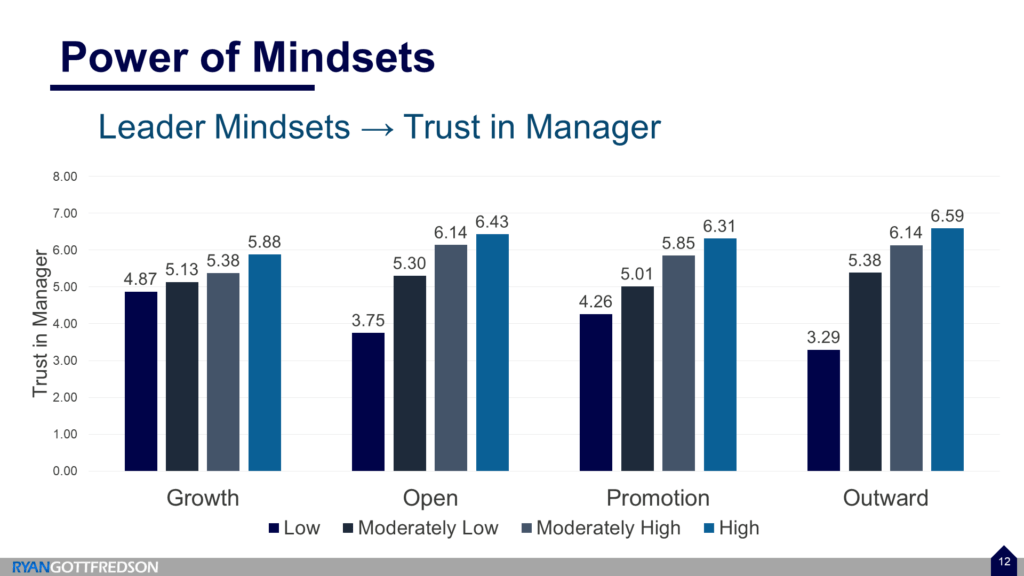
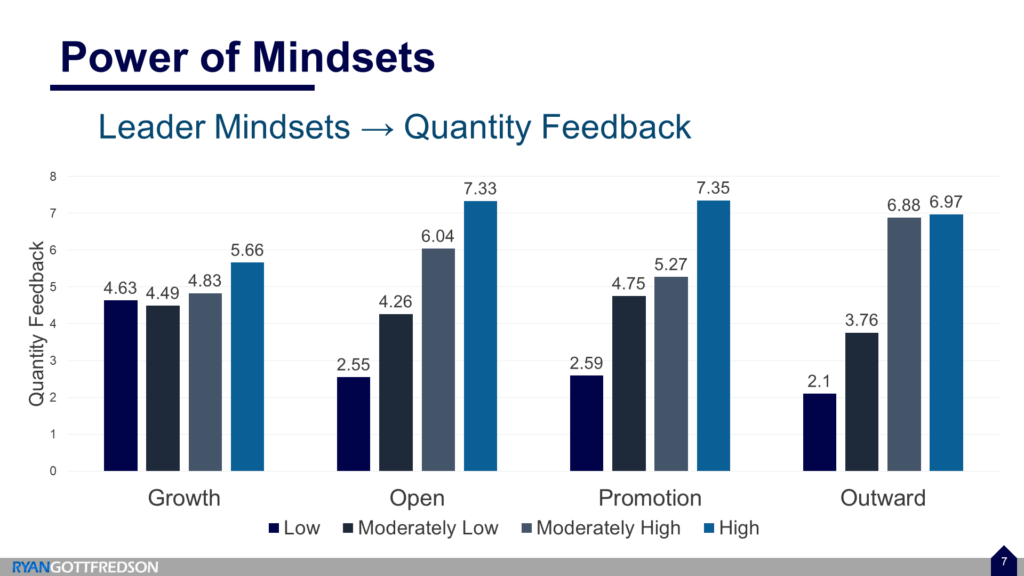
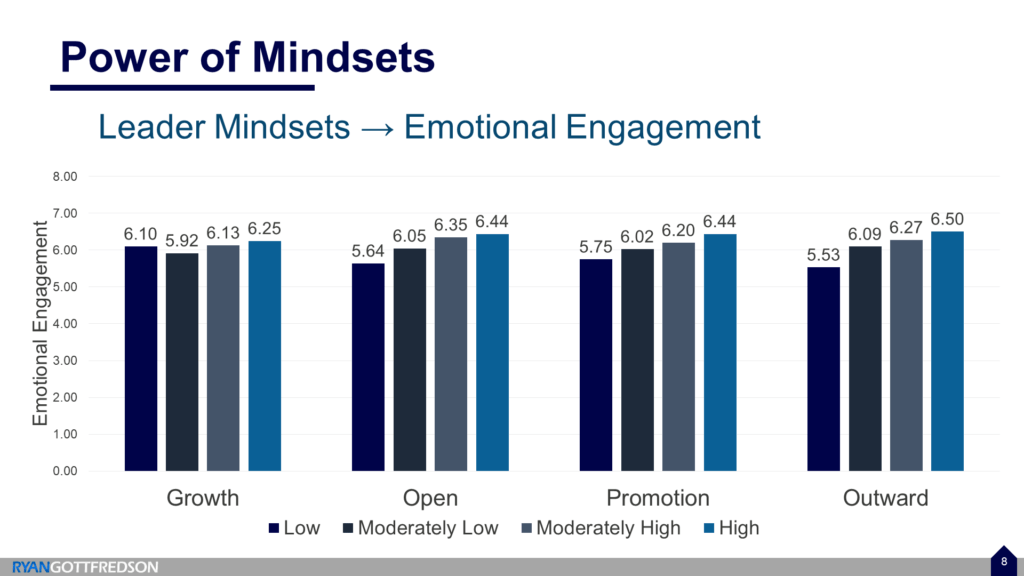
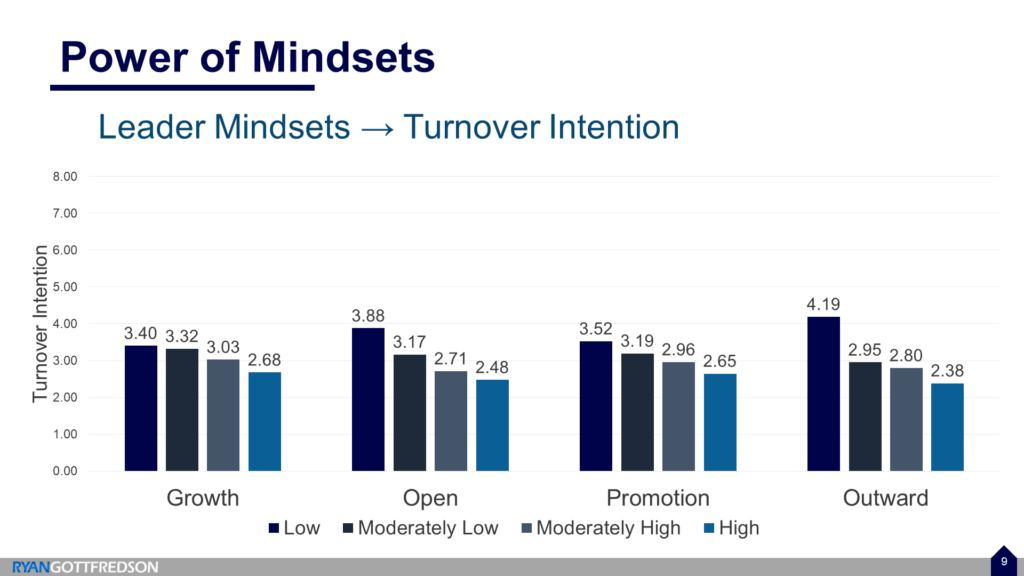
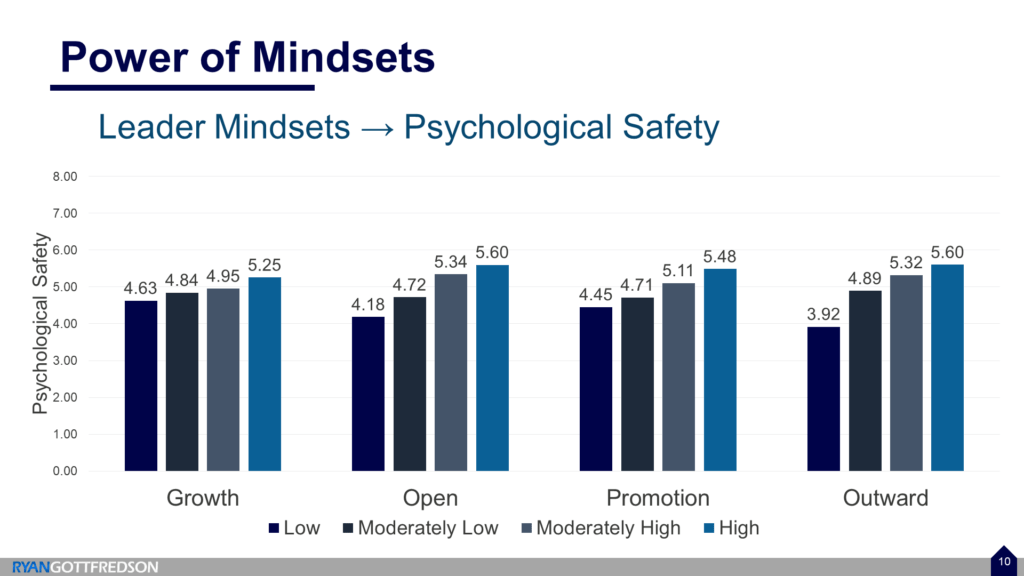
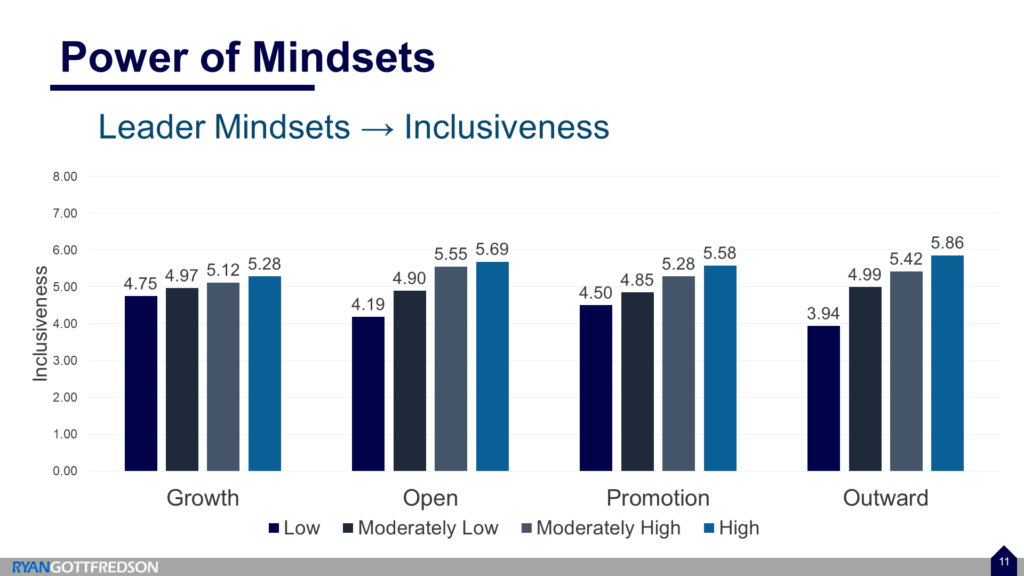
Arbinger Institute Finding
The Arbinger Institute is a consulting group that focuses primarily on inward and outward mindsets when they work to improve organizations’ leaders and cultures.
One of their clients has been the Kansas City Swat Team (KCST).

For years, Kansas City police saw criminals through an inward mindset, as objects worthy of arrest and incarceration. With this mindset, it was not uncommon for them to use excessive force, spit tobacco on suspects’ furniture, or put bullets into potentially dangerous dogs. This led to SWAT receiving the most complaints within the Kansas City Police Department, on average two to three per month, costing the department an average of $70,000 per incident. That is about $2 million per year.
Supervisors recognized that something needed to change. That is when they brought in the Arbinger Institute to help them upgrade their outward mindsets. The effects were both large and immediate. Initially, the thinking and behaviors of SWAT team members changed. They started to see criminals as people, and as such, treated them with greater kindness. They stopped chewing tobacco on raids. And, they brought in a dog specialist to teach them how to better control potentially dangerous animals without shooting them.
The results of these changes were profound. The SWAT team progressed from enduring two or three complaints per month to not receiving a single complaint for over six years. Since they were treating people more kindly, those citizens were more willing to cooperate with them, leading them to recover more drugs and guns in the next three years than they had during the previous decade.
If you want another example, here is one from Raytheon.
The Arbinger Institute has been doing its work for decades with incredibly replicable results.
What’s Next?
Want to learn the degree to which you have an outward mindset relative to 10,000+ people who have taken my FREE personal mindset assessment?
In my next article, I will be focusing on how we develop more of an outward mindset to capture more of these benefits in our lives.
If you want to dive deeper into these ideas, check out my book that just became available:
Success Mindsets: Your Keys to Unlocking Greater Success in Your Life, Work, & Leadership











